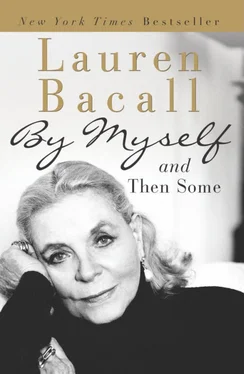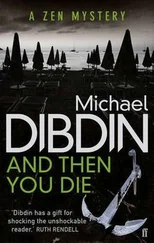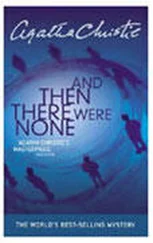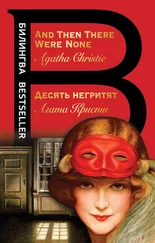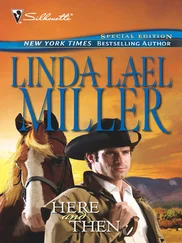Every year George Jean Nathan wrote a page in Esquire appraising the past theatre season and listing merits and demerits. On the merit side in the July 1942 issue was the following: ‘The prettiest theatre usher – the tall slender blonde in the St James Theatre, right aisle, during the Gilbert & Sullivan engagement – by general rapt agreement among the critics, but the bums are too dignified to admit it.’ I really enjoyed that one. Being noticed by someone renowned in theatrical circles – anyone – was something . It wouldn’t get me a part, but it couldn’t hurt and it was better than just disappearing.
I n August I actually met the critic George Jean Nathan at a USO drive. Young actresses were stationed at various nightclubs around the city to sit at tables and try prettily to collect money. I was assigned to Café Society Downtown, where a new young entertainer had just exploded on the scene. His name: Zero Mostel. One night Nathan came in with William Saroyan and a lovely blonde girl and a lovely dark girl. The blonde was Saroyan’s soon-to-be wife, Carol, and the dark-haired girl was Oona O’Neill. Nathan invited me to sit with them for a while. Another thrill and another first for me – sitting with a famous, highly thought-of playwright like Saroyan. Nathan asked me if I’d like to have lunch with him the next day at a place called the ‘21’ Club on West 52nd Street. I had never heard of it, but said yes, thinking perhaps I’d see or meet someone in the theatre. I dressed up in my best dress. I had never been in such a grand restaurant. It was 1:30 – late for lunch, and the crowd was beginning to thin out. I looked around the room at the well-dressed men and women, all clearly used to being there, totally at ease. A world I knew nothing about. George asked what was happening with my career – I told him everything, including the Claudia offer and my decision. He said I probably had done the right thing. He never made the slightest suggestion of a pass – the men I had met in the theatre who had lecherous reputations had never displayed them to me – I guess my inexperience and youth stuck out all over, as opposed to my chest. I looked across the room and saw the familiar face of Burgess Meredith staring at me. He was considered one of the finest actors in the theatre, having starred in Winterset and High Tor . He was very attractive – had a devilish, witty face. At the end of the lunch I went to the ladies’ room and returned to find Meredith talking to George. We were introduced, then he went back to his table. With a wink Nathan said, ‘He’s a devil with the ladies – look out.’ I knew nothing except that he was appealing – a beautiful actor – and I wanted to go out with him. He sent me a note asking for my phone number. I wrote back, ‘I’m in the book under my mother’s name, Natalie Bacal.’ And that was all. We left and I couldn’t know if I would hear from him. I went home starry-eyed, praying the phone would ring – acted out many scenes in my head, all ending with Buzz Meredith being the Prince and me Cinderella. What a child! Several nights later the phone did ring – it was Mr Meredith. He said, ‘Hello – there’s a big evening at Madison Square Garden Sunday night. A Night of Stars. Would you like to go with me?’ I was so unsubtle – didn’t have a clue how to play the game. ‘Oh, I’d love to,’ I said. I was walking on air. My mother was a little horrified. ‘You don’t even know the man,’ she said. ‘You practically let him pick you up – he’ll have no respect for you.’ I laughed it off, saying it was the Night of Stars – every name I’d ever heard of would be there. What would I wear? I had no long dress. Next day we rushed to Loehmann’s, where we found a long-sleeved navy-blue chiffon dress with a lace jabot. Very pretty – not very daring – and I was to wear it to any and every event for years to come. The big night came and of course my mother had lectured me to be home by midnight – be careful – who knew what kind of man Burgess Meredith might be (she was unimpressed by his stardom) – I was under age and she’d be waiting up for me. I was headstrong, thought I knew what I was doing and had no intention of coming home until I was ready. Buzz picked me up and off I went on my first evening among the stars with a star. What, oh, what would happen that night? As it turned out, nothing. Buzz was adorable to me. Paulette Goddard was there looking ravishing and exciting. I had known something was going on between them, but I didn’t know they were in love and had broken up temporarily for some reason or other. I was hardly a threat.
The year 1942 brought what turned out to be my last time spent in the theatre for seventeen years. Max Gordon was casting a new comedy called Franklin Street by Arthur Sheekman and Ruth and Augustus Goetz. It was to be directed by George S. Kaufman and star Sam Jaffe. The period was 1900; place, a boardinghouse in Philadelphia where an ex-actor runs a dramatic school, trying to keep wolves away from the door. As I’ve said, Max Gordon always gave me access to himself and his office in the Lyceum Theatre, and this time there might actually be a part for me. When I went to see him, he told me I could read and that George Kaufman was probably in the Lyceum lobby at that moment. So, fresh, persistent kid that I was, I ran down to the lobby. (For one as insecure as I was, I sure had no compunction about running up to strangers and brazenly introducing myself. I was damn lucky all my strangers had class!) There were two men standing in a corner. I asked a man in the box office if one of them was George Kaufman and he pointed him out. Once having seen George Kaufman, you could never forget him. He was very tall, very, very thin, with a long face, steel-rimmed glasses, and black hair that seemed to stand straight up. Slouching so as to look smaller, younger, I walked up to him, introduced myself, and told him I had spoken to Mr Gordon and hoped there’d be a part I could read for in his new play. He introduced me to the man standing next to him, who turned out to be one of the authors, Arthur Sheekman. He asked what I had done – I told him (that must have made him chuckle) and said, ‘I really am very good, I can act and I know I would add to your play. I can look younger, smaller, anything you want – just let me read for you, please.’ It was all said in a rush – the hammerhead approach – and caught him somewhat unaware. He was patient and said, ‘Well, there might be something – why don’t you come to the reading next week and we’ll see what happens.’ ‘Oh, thank you, Mr Kaufman – I’ll be there, you won’t be sorry. Thank you, Mr Sheekman.’ God knows exactly what I said or how I looked – no different from the hundred other girls who were looking for that same break. Those men must have been inundated with girls like me, singing their own praises, searching, praying for the break, for discovery – for the answer .
The following week I reported to the Lyceum Theatre. All I knew was that the play was a comedy with four or five ingenue roles. When I arrived at the stage door, a faceless young man directed me to the stage manager. As usual, he had a small table set up in the wings with many bits of paper on it – all identifying actors, I suppose. Many other girls were hovering in the wings – we were all there for the same reason, and once again there’d be losers and winners. When my turn came, I was handed ‘sides’ by the stage manager. Sides are pieces of paper about five by seven inches that have only one individual role typed on them, with cues from other roles. Simpler, less complicated for auditions, they take the place of scripts for every Tom, Dick, and Betty who reads for a part. The stage manager gives sides to auditioning actors so they can familiarize themselves with the words, mood, etc., before they are called upon to step center stage.
Читать дальше
